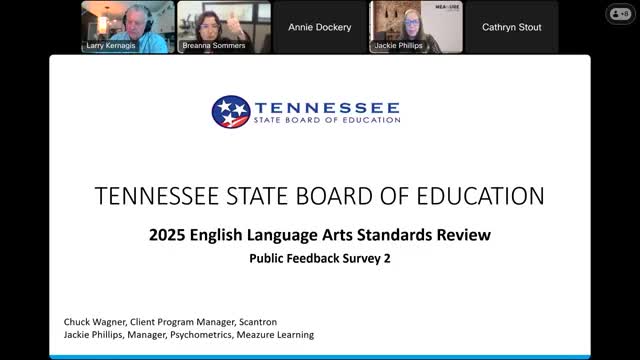Article not found
This article is no longer available. But don't worry—we've gathered other articles that discuss the same topic.

Committee sets logistics for weeklong ELA work sessions; Department of Education outlines support and stakeholder themes

Public survey finds majority of draft ELA standards should be kept; kindergarten, grade 8 drew the most comments

